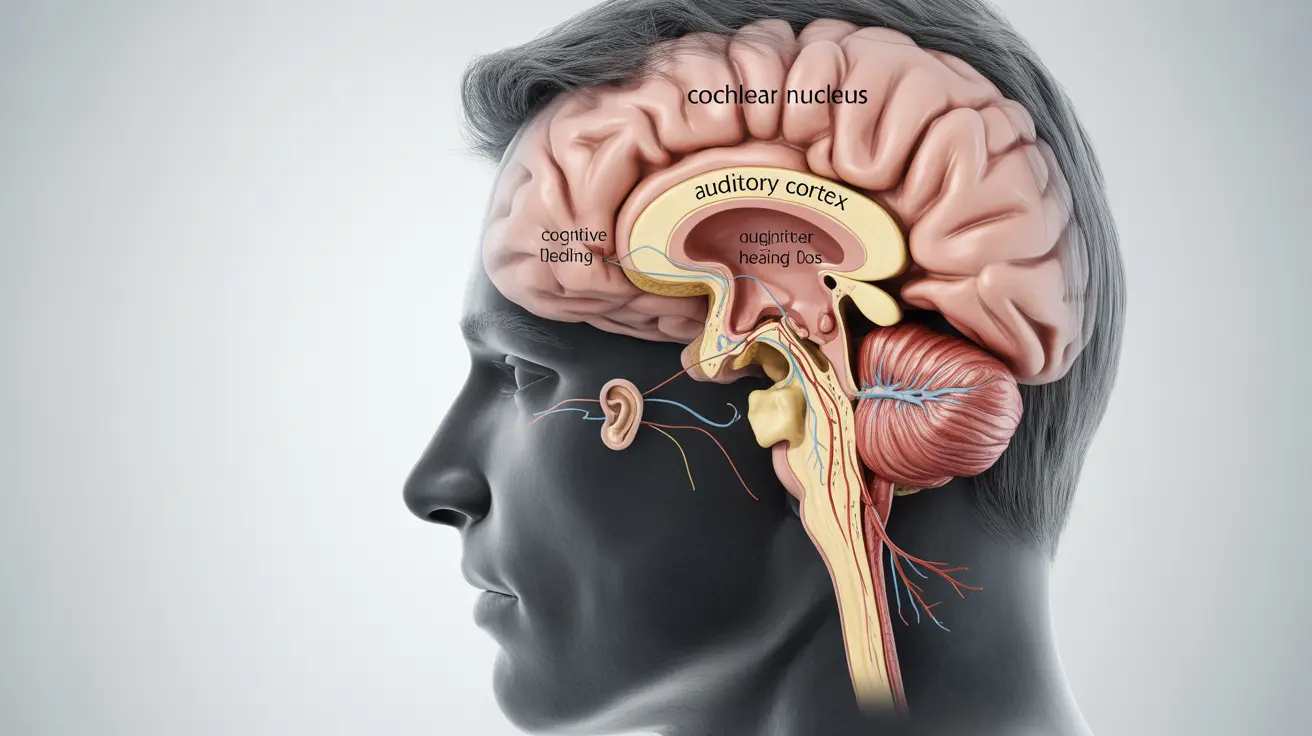The relationship between untreated hearing loss and dementia has become an increasingly important focus in medical research. As our population ages, understanding this connection could be crucial for preventing or delaying cognitive decline in older adults. Recent studies have shown that addressing hearing problems early may play a significant role in maintaining cognitive health.
This comprehensive guide explores how hearing loss affects brain function, the importance of early intervention, and steps you can take to protect your cognitive health while managing hearing difficulties.
Understanding the Link Between Hearing Loss and Cognitive Decline
When hearing loss goes untreated, it creates additional cognitive load on the brain. The extra effort required to process and understand speech can drain cognitive resources that would typically be available for other mental tasks, including memory and executive function.
Research indicates that individuals with untreated hearing loss may experience faster cognitive decline compared to those with normal hearing or those who use hearing aids. This accelerated decline can contribute to an increased risk of developing dementia.
How Hearing Loss Affects Brain Structure and Function
Untreated hearing loss can lead to several changes in the brain:
- Reduced gray matter volume in auditory processing areas
- Decreased stimulation of neural pathways
- Altered brain structure and connectivity
- Accelerated brain tissue loss
These physical changes in the brain can compound over time, potentially creating conditions that may increase vulnerability to cognitive decline and dementia.
The Social Isolation Factor
One of the most significant ways hearing loss contributes to dementia risk is through social isolation. When people struggle to hear conversations, they often:
- Withdraw from social situations
- Avoid group activities
- Reduce communication with family and friends
- Experience increased anxiety in social settings
This social withdrawal can lead to decreased cognitive stimulation and increased risk of depression, both of which are known risk factors for dementia.
Prevention and Intervention Strategies
Taking proactive steps to address hearing loss can help protect cognitive function:
- Regular hearing screenings, especially after age 50
- Prompt use of hearing aids when recommended
- Maintaining social engagement despite hearing difficulties
- Practicing good hearing protection habits
- Engaging in cognitive stimulation activities
The Role of Hearing Aids in Cognitive Protection
Modern hearing aids can do more than just amplify sound. They can help preserve cognitive function by:
- Reducing the cognitive load required for listening
- Maintaining social connections and engagement
- Supporting continued participation in stimulating activities
- Preserving neural pathways related to sound processing
Frequently Asked Questions
How does untreated hearing loss increase the risk of developing dementia in older adults?
Untreated hearing loss increases dementia risk through multiple mechanisms: increased cognitive load on the brain, reduced social engagement, and changes in brain structure. The extra effort required to process sounds can overwhelm cognitive resources, while social isolation can lead to reduced mental stimulation.
Can using hearing aids help reduce or delay cognitive decline related to hearing loss?
Yes, studies suggest that using hearing aids can help reduce the risk of cognitive decline. They support better communication, maintain social connections, and reduce the cognitive strain of processing sounds, potentially protecting against dementia-related changes in the brain.
What are the signs of hearing loss that might indicate a higher dementia risk?
Key signs include frequently asking people to repeat themselves, trouble following conversations in noisy environments, turning up TV or radio volume unusually high, and withdrawing from social situations. These symptoms, particularly when leading to social isolation, may indicate an increased dementia risk.
Why is social isolation linked to hearing loss and dementia risk?
Social isolation resulting from hearing loss reduces cognitive stimulation and social engagement, which are crucial for maintaining brain health. This isolation can lead to depression and reduced mental activity, both known risk factors for cognitive decline and dementia.
When should someone with hearing difficulties seek evaluation to prevent dementia?
Adults should seek hearing evaluation as soon as they notice any difficulty hearing or understanding conversations, ideally by age 50 or earlier if problems arise. Early intervention with hearing aids or other treatments can help maintain cognitive function and reduce dementia risk.




